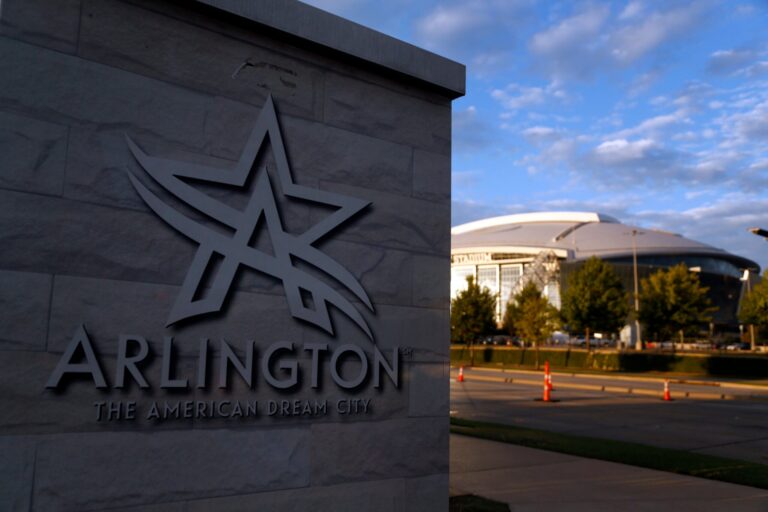As I write this, the outside temperature is 91°F, which is far from the worst we can expect this summer. According to data from the Climate Impact Lab, there are now an average of 105 days in Arlington where the temperature is 90°F or higher, compared to 91°F. Temperatures have remained the same as when I was born in 1991. This change in temperature is largely due to fracking, which is rampant in our North Texas town. As the climate continues to warm, our local government continues to expand oil and gas production, in a town that already has over a hundred wells.
The issue of fracking is a recurring topic at Arlington City Council meetings, where it continues to be approved despite public outcry and the many health risks associated with extraction. Fracking is dramatically accelerating the climate crisis. It produces significant methane, a greenhouse gas more potent at trapping heat than carbon dioxide, which scientists estimate is responsible for 20 to 30 percent of global warming to date. In addition to fueling the climate crisis, fracking has been linked to a variety of health problems. According to a 2023 assessment, air pollution from oil and gas extraction operations in 2016 was responsible for $77 billion in health impacts, including: 410,000 asthma attacks, 2,200 new cases of childhood asthma, and 7,500 excess deaths. Beyond that national figure, a report from environmental group Livable Arlington documented fracking pollution at 85 local sites.
The Physicians for Social Responsibility group conducted an extensive investigation into the issue and concluded in a lengthy report: “Our review found no evidence that hydraulic fracturing can be carried out in a manner that does not directly threaten human health or jeopardize the climate stability on which human health depends.”
“We feel like no one supports us, no one is on our side.”
Despite this growing health crisis, the City of Arlington has chosen to do nothing to stop the proliferation of fracking in our city. In fact, it continues to expand it. At a recent council meeting, TotalEnergies was approved to operate five new wells on an existing site.
Our Mayor, Jim Ross, speaking on behalf of the full council, explained the reasons behind the decision. He explained that the city had no choice but to approve the site because of House Bill 40 of 2015, which prohibits local governments from regulating underground operations related to oil and gas extraction. Ross and the rest of the city council appear to have their hands tied. Council member Barbara Odom-Wesley was recently quoted in the Fort Worth Report As the prosecutor says: “We did everything we could do, according to our attorney’s office.”
The question then becomes whether they want to do more. If city officials disagree with a state law that requires them to accept fracking in their city, the least they can do is publicly voice that disagreement to draw attention to the problem. They could tell state officials that HB 40 is poisoning their constituents and that they will no longer tolerate it.
The influence of the oil and gas industry on our local government is immense, but it is not insurmountable. At the Sunrise Movement, a nonprofit and activist organization fighting climate change, we urge the council to take a position that does not shirk responsibility or cave to corporate interests, but holds them accountable for the harm they inflict on our communities.
The problems we face today require more than a city council as a conduit for business development. In response to the climate crisis, leaders must seriously consider how their role can be used to limit emissions and shore up infrastructure. The importance of local action in combating the climate crisis was made clear in a recent analysis by the Brookings Institution, which stated that “cities generate about 70 percent of global greenhouse gas (GHG) emissions.”
Bad laws should not be hidden behind, but fought against. We urge city officials to do what they can now, despite the limitations imposed by HB 40. The restrictions—that is, how far wells must be from protected areas like homes, schools, and hospitals—should be set to the maximum allowed by state law; officials should embrace their personal autonomy and fight for their constituents. Other cities across the country have taken bold steps to reduce carbon emissions, and I would like to believe that our city leaders have the courage to do the same.
To the mayor, the city council, and all those who represent the people, I would like to ask this question: Whose side are you on? The companies that extract, pollute, and ultimately abandon our city? Or the people who, as my friend Jennifer Quick said at a recent city council meeting, “are doing the work that makes Arlington a great place to live”? She added, “It feels like no one has our back, no one is on our side.”
Now it’s time to prove to him, and to all of us, that we are wrong.


